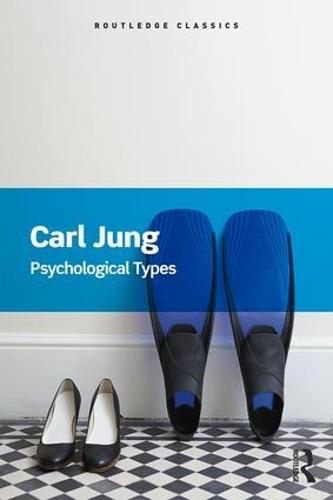Full Product Details
Author: Carl Jung ,
John Beebe
Publisher: Taylor & Francis Ltd
Imprint: Routledge
Dimensions:
Width: 15.60cm
, Height: 3.00cm
, Length: 23.40cm
Weight: 0.860kg
ISBN: 9781138687424
ISBN 10: 1138687421
Pages: 568
Publication Date: 26 September 2016
Audience:
College/higher education
,
Tertiary & Higher Education
,
Undergraduate
Format: Paperback
Publisher's Status: Active
Availability: In Print

This item will be ordered in for you from one of our suppliers. Upon receipt, we will promptly dispatch it out to you. For in store availability, please contact us.
Reviews
[Jung] has shown with signal lucidity that each person has a right to live according to his own type, and his presentation of the guiding principles for the recognition of the type is one of the most humanitarian achievements that has become manifest. New York Times This volume is drastically serious, positive, didactic, classic and yet more than stimulating. It is energizing, liberating and recreative. The author shows an amazingly sympathetic and comprehensive knowledge of the introvert of the thinking type, and hardly less for his other types. New York Times ...it has been an astounding phenomenon that a single person could develop such an important dynamic typology with such exhaustive inclusiveness between his 38th and 45th years of life. Jung not only saw the need and the problem but formulated and refined the theory to a point that stands the test of time. Wayne K. Detloff, Psychological Perspectives When I first found Bayne's translation, in 1932, I felt that this was the most important book that I had ever read. Since then, I have found no reason to revise my opinion. Joseph B. Wheelwright, Journal of Analytical Psychology
[Jung] has shown with signal lucidity that each person has a right to live according to his own type, and his presentation of the guiding principles for the recognition of the type is one of the most humanitarian achievements that has become manifest. New York Times This volume is drastically serious, positive, didactic, classic and yet more than stimulating. It is energizing, liberating and recreative. The author shows an amazingly sympathetic and comprehensive knowledge of the introvert of the thinking type, and hardly less for his other types. New York Times ...it has been an astounding phenomenon that a single person could develop such an important dynamic typology with such exhaustive inclusiveness between his 38th and 45th years of life. Jung not only saw the need and the problem but formulated and refined the theory to a point that stands the test of time. Wayne K. Detloff, Psychological Perspectives When I first found Bayne's translation, in 1932, I felt that this was the most important book that I had ever read. Since then, I have found no reason to revise my opinion. Joseph B. Wheelwright, Journal of Analytical Psychology
"""[Jung] has shown with signal lucidity that each person has a right to live according to his own type, and his presentation of the guiding principles for the recognition of the type is one of the most humanitarian achievements that has become manifest."" New York Times ""This volume is drastically serious, positive, didactic, classic and yet more than stimulating. It is energizing, liberating and recreative. The author shows an amazingly sympathetic and comprehensive knowledge of the introvert of the thinking type, and hardly less for his other types."" New York Times ""…it has been an astounding phenomenon that a single person could develop such an important dynamic typology with such exhaustive inclusiveness between his 38th and 45th years of life. Jung not only saw the need and the problem but formulated and refined the theory to a point that stands the test of time."" Wayne K. Detloff, Psychological Perspectives ""When I first found Bayne’s translation, in 1932, I felt that this was the most important book that I had ever read. Since then, I have found no reason to revise my opinion."" Joseph B. Wheelwright, Journal of Analytical Psychology"
Author Information
Carl Gustav Jung (1875 - 1961) was a Swiss psychiatrist who founded the school of psychology known as analytical psychology. Jung established the concepts of the extraverted and the introverted personality, archetypes, and the collective unconscious.




